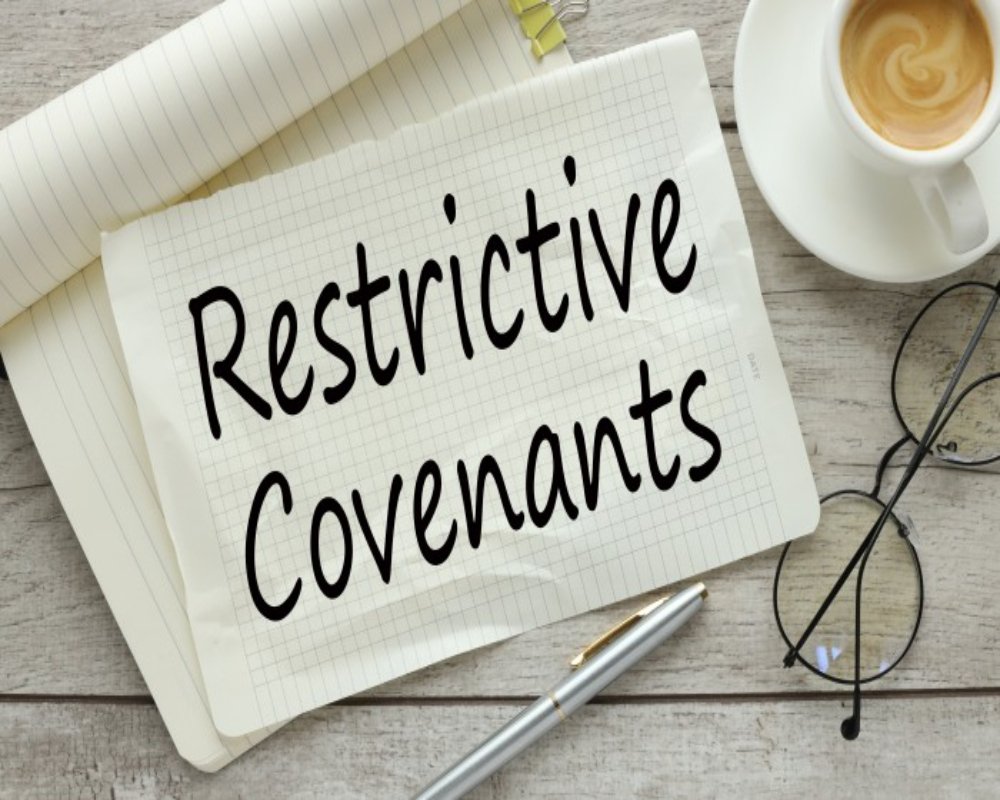Introduction
Restrictive covenants are legally binding provisions written into property deeds that limit how a property can be used or developed. In commercial real estate, restrictive covenants serve as private land use controls, shaping the nature of developments, preserving property values, and maintaining the character or functionality of commercial areas. Unlike zoning laws, which are government-imposed, restrictive covenants are created through agreements between private parties—typically developers, landowners, or commercial property associations. Understanding the scope, purpose, and impact of restrictive covenants is essential for anyone involved in purchasing, developing, or managing commercial property, as these restrictions can significantly influence a project’s viability and design.
Nature and Purpose of Restrictive Covenants
Restrictive covenants are intended to ensure consistent land use standards and protect the interests of property owners within a defined area. They may limit the types of businesses that can operate on a site, control the size and appearance of buildings, set standards for signage and landscaping, regulate parking, or restrict certain types of activities deemed undesirable or incompatible with neighboring uses.
For example, a commercial development might include restrictive covenants that prohibit heavy industrial uses within a retail shopping center, limit building height to preserve sightlines for existing tenants, or require adherence to specific architectural styles to create a cohesive aesthetic. In office parks, covenants might regulate the placement of loading docks or require setbacks from access roads.
These restrictions aim to maintain a predictable environment that benefits all property owners by minimizing nuisances, protecting brand identity, preserving visual appeal, and enhancing overall property value.
Key Characteristics of Restrictive Covenants
Restrictive covenants are typically recorded in public land records and are legally binding on future owners, running with the land unless they are explicitly removed, expire by their own terms, or are legally invalidated. They are enforceable through civil actions, meaning that if a property owner violates a covenant, other affected owners or an owners’ association can seek injunctive relief, damages, or other legal remedies to enforce compliance.
Importantly, restrictive covenants are interpreted according to their specific language and intent at the time they were created. Courts often enforce them strictly but also scrutinize whether they serve a legitimate purpose and are not overly burdensome, illegal, or contrary to public policy.
Common Examples in Commercial Property Deeds
Typical restrictive covenants in commercial deeds may include prohibitions against operating certain types of businesses, such as adult entertainment venues, auto repair shops, or fast-food restaurants, in upscale office or retail developments. They might dictate minimum square footage requirements, mandate particular facade materials, or limit the hours of operation for businesses.
Some covenants restrict signage types and locations to maintain visual harmony, while others address parking obligations, noise control, waste disposal standards, and lighting specifications. In mixed-use developments, covenants often manage the coexistence of residential, retail, and office components to prevent conflicts between uses.
Impact on Development and Investment
Restrictive covenants can have significant strategic and financial implications. On one hand, they can enhance property appeal by ensuring a high-quality, controlled environment that attracts premium tenants and investors. On the other hand, they can limit development flexibility, increase compliance costs, and restrict the range of feasible business operations.
During due diligence, developers and investors must thoroughly review all recorded covenants affecting a property to understand their rights and limitations. Covenants that restrict certain uses or impose expensive design requirements may affect project feasibility, tenant mix, or even financing options. In some cases, legal counsel may be needed to interpret ambiguous covenants or explore the possibility of modifying or releasing overly restrictive terms through negotiation or legal action.
Modification and Termination of Restrictive Covenants
Changing or removing restrictive covenants can be complex, typically requiring consent from affected property owners or approval under provisions outlined in the original covenant agreement. Some covenants have built-in expiration dates or mechanisms for amendment, while others may last indefinitely. In limited circumstances, courts may modify or nullify covenants if they have become obsolete, if they unduly hinder property use without serving a valid purpose, or if they violate evolving public policy standards.
Conclusion
Restrictive covenants in commercial property deeds are powerful tools that shape land use, protect property values, and create coherent, attractive development environments. While they provide important benefits in maintaining consistency and quality across commercial properties, they also impose limitations that must be carefully considered during acquisition, development, and management. Understanding the nature, enforcement, and strategic impact of restrictive covenants is essential for ensuring that a commercial real estate investment aligns with both operational goals and long-term value creation. In the complex world of commercial property transactions, diligent review and management of restrictive covenants are key to unlocking and protecting development potential.
Hashtags
#RestrictiveCovenants #CommercialProperty #RealEstateLaw #PropertyDeeds #LegalAdvice #RealEstateInvesting #PropertyManagement #LandUse #ZoningLaws #CommercialRealEstate #RealEstateDevelopment #PropertyRights #InvestmentProperty #RealEstateTips #LegalTerms #CovenantEnforcement #PropertyOwnership #RealEstateMarket #BusinessLaw #RealEstateTrends


